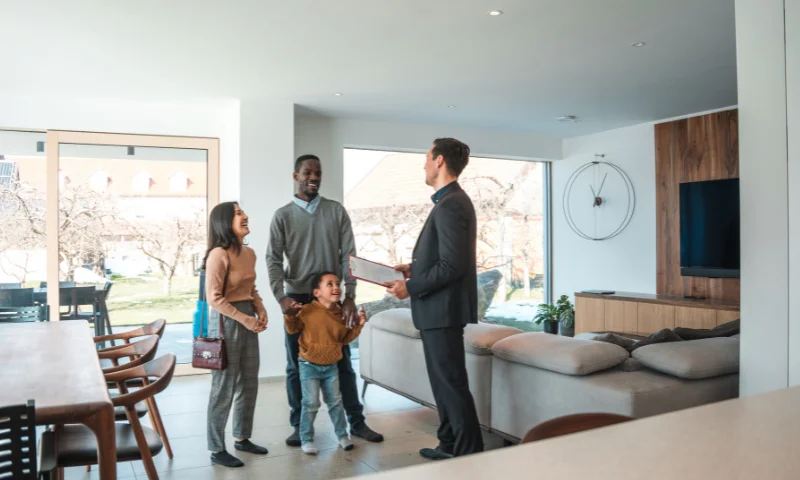Are you considering buying a second home? Whether you’re looking for a vacation getaway or an investment property, the process of buying a second home can be both exciting and overwhelming. With so many factors to consider, from location and financing to rental potential and long-term value, it’s essential to arm yourself with the right knowledge and strategies.
That’s where our ultimate guide comes in. In this comprehensive resource, we’ll walk you through everything you need to know about buying a second home. From tips on finding the perfect location and navigating the financing process to advice on maximizing rental income and avoiding common pitfalls, we’ve got you covered. So, whether you’re a seasoned real estate investor or already own your own home, get ready to make informed decisions and embark on your journey to owning a second home with confidence.
Let’s dive in and discover the tips and tricks that will help you achieve your real estate goals.
Benefits of owning a second home
Owning a second home comes with a myriad of benefits. First, it provides you with a personal retreat where you can escape the hustle and bustle of everyday life.
Having a second home allows you to create lasting memories with your loved ones in a space that feels truly yours. Additionally, owning a second home can be a smart investment.
Real estate has historically proven to appreciate in value over time, and a well-chosen second home can provide you with a valuable asset that grows in worth.
Furthermore, a second home can also generate rental income when you’re not using it. By renting out your property, you can offset the costs of ownership and potentially turn it into a profitable venture. With these benefits in mind, it’s no wonder that many individuals are drawn to the idea of owning a second home.
Factors to consider before buying a second home

Before diving into the second home market, there are several factors you need to consider.
- Evaluate your financial situation and determine how much you can comfortably afford to spend on a second home. Take into account not only the purchase price but also ongoing expenses such as property taxes, insurance, and maintenance costs. It’s crucial to have a clear understanding of your budget to avoid overextending yourself financially.
- Secondly, carefully review your reasons for buying a second home. Are you seeking a vacation property for personal use, or do you intend to rent it out for income? Understanding your goals will help guide your decision-making process.
- Additionally, consider the location of the second home. Is it conveniently accessible to amenities and attractions? Does it align with your lifestyle and preferences?
- Lastly, think about the long-term value of the property. Is the area experiencing growth? Are there any potential risks or challenges that could affect the value of your investment? By thoroughly considering these factors, you can make an informed decision that aligns with your goals and financial capabilities.
Financing options for purchasing a second home
When it comes to financing a second home, there are several options to explore. One common method is to secure a traditional mortgage from a lender.
However, keep in mind that lenders may have stricter requirements for second home mortgages, such as higher down payments and interest rates.
Another option is to tap into your home equity through a home equity loan or a home equity line of credit (HELOC). This allows you to borrow against the value of your primary residence to fund your second home purchase.
You may consider a cash-out refinance, which involves refinancing your primary mortgage for a higher amount and using the excess funds to buy your second home. Either way you will want to talk with a lender since your debt to income ratio will change with this option.
Whichever financing option you choose, it’s crucial to carefully evaluate the terms, interest rates, and repayment plans to ensure that it aligns with your financial goals and capabilities.
Choosing the right location for your second home
The location of your second home plays a significant role in its value and potential for personal enjoyment or rental income.
Start by considering the purpose of your second home. If you’re seeking a tranquil retreat for relaxation, you may prefer a secluded location like Lake Las Vegas or a condo hotel like MGM signature.
On the other hand, if you’re looking for a property with high rental potential, opt for a location that attracts tourists or has a strong demand for vacation rentals. Additionally, evaluate the accessibility of the location. Is it within a reasonable distance from your primary residence? Are there convenient transportation options? Consider the proximity to amenities such as grocery stores, restaurants, and entertainment venues as well.
Lastly, research the local real estate market to gain insights into property values, trends, and potential growth. By carefully selecting the right location, you can ensure that your second home meets both your personal and financial objectives.
Finding the perfect property for your needs
Once you’ve identified the ideal location for your second home, it’s time to find the perfect property that meets your needs. Start by creating a list of essential features and amenities you desire in your second home. Consider factors such as the size of the property, the number of bedrooms and bathrooms, and any specific requirements, such as a pool or a garden.
It’s also important to assess the condition of the property and evaluate any necessary repairs or renovations. We can provide valuable insights and guide you through the buying process.
Additionally, take the time to visit potential properties in person to get a feel for the neighborhood, the surroundings, and the overall ambiance. By being diligent and thorough in your search, you can find the perfect property that aligns with your vision for your second home.
Tips for negotiating the best price for your second home
Negotiating the price of your second home is a crucial step in the buying process. Start by conducting thorough research on the local real estate market and comparable sales in the area. This will provide you with a solid understanding of the property’s value and give you leverage during negotiations.
Mark and I will sit down with you and show you the comps, the pictures of the homes that have sold, that are in contract and that are available for sale. We will compare square footage, yard space, and condition. We will look to see which homes have pools and spas, if they are single story homes or 2 story.
When negotiating, be prepared to walk away if the terms don’t align with your budget or expectations. Remember, there are always other properties available, and it’s essential to remain disciplined and not let emotions cloud your judgment.
Finally, don’t be afraid to negotiate on other terms besides the price, such as closing costs or repairs. By being strategic and persistent in your negotiations, you can secure the best possible deal for your second home.
Understanding the legal and tax implications of owning a second home
Owning a second home comes with various legal and tax considerations. It’s essential to familiarize yourself with these implications to ensure compliance and make informed decisions.
Consult with a tax professional to understand your obligations and take advantage of any available tax deductions or exemptions. By proactively addressing these legal and tax considerations, you can avoid potential pitfalls and ensure a smooth and compliant ownership experience.
Maintaining and managing your second home
Once you’ve successfully purchased your second home, it’s crucial to establish a plan for its ongoing maintenance and management. Regular maintenance is essential to preserve the property’s value and ensure its longevity. Create a maintenance schedule and budget for routine tasks such as landscaping, cleaning, and repairs.
Consider hiring a local property management company if you’re unable to be physically present to oversee these responsibilities. They can handle everything from maintenance and repairs to managing rental bookings if you choose to rent out your second home.
Establish clear communication channels with your property manager or any service providers to ensure efficient and effective coordination. By proactively managing the maintenance and operations of your second home, you can protect your investment and maximize its enjoyment and potential.
Renting out your second home as a vacation rental
Renting out your second home as a vacation rental can be a lucrative endeavor, providing you with additional income and potentially offsetting the costs of ownership.
Start by determining the rental potential of your location and property. Research the local rental market and assess the demand for vacation rentals. Consider factors such as peak tourism seasons, nearby attractions, and the availability of similar properties in the area.
Next, establish clear rental policies and guidelines. Determine the rental rates, minimum stay requirements, and any rules or restrictions you want to implement. Consider listing your property on reputable vacation rental platforms and leverage online marketing strategies to attract potential guests.
Lastly, ensure that your property is well-maintained, clean, and adequately equipped to provide an enjoyable experience for your guests. By effectively renting out your second home as a vacation rental, you can maximize its income potential and turn it into a profitable venture.
Conclusion and final thoughts
By implementing the tips and tricks outlined in this guide, you can confidently embark on your journey to owning a second home. Remember, buying a second home is a significant decision that requires careful consideration and planning. Take the time to thoroughly evaluate your options, consult with professionals, and align your decisions with your goals and financial capabilities. With the right knowledge and strategies, you can make a smart investment that brings you joy, financial growth, and unforgettable memories for years to come. Good luck on your real estate journey!




